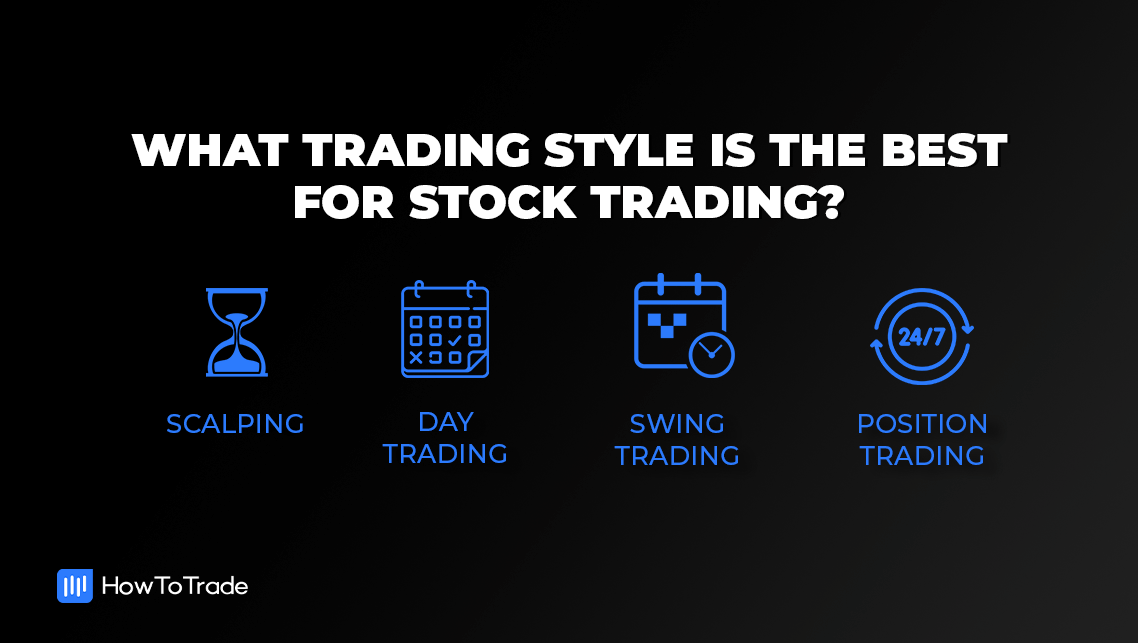Mastering Speculation Strategies: A Guide to Navigating the Market
Are you looking to enhance your financial trading skills and boost your success in the market? Speculation strategies, such as day trading, swing trading, position trading, and scalping, play a crucial role in achieving your goals. With a focus on risk management and strategic decision-making, mastering these strategies can lead to profitable outcomes. Learn how to navigate the complexities of the financial market effectively by understanding the different types of speculation techniques and implementing the right approach for your trading style.

Delving into Speculation: Understanding the Risks and Rewards
Speculation strategies entail participating in financial activities with the aim of capitalizing on price shifts, aiming to secure profits from market movements. However, this endeavor is not devoid of risks, encompassing substantial opportunities for both gains and losses. In this high-stakes environment, speculators heavily lean on comprehensive market evaluation and forecasts to drive their decision-making processes. Mastering speculation necessitates a profound comprehension of market intricacies and a readiness to venture into well-calculated risks to navigate the volatile financial landscape successfully.
By delving into the realm of speculation, traders immerse themselves in a dynamic arena where financial instruments fluctuate constantly, presenting lucrative opportunities tempered with substantial risks. While carefully analyzing market trends and patterns, speculators leverage this insight to make informed bets on the future direction of assets, aiming to secure profitable outcomes amidst uncertainty and volatility. Sharpening the skill of speculation demands an astute observation of market behaviors coupled with a strategic approach to anticipate and capitalize on price movements effectively.
Approaching speculation mandates a strategic blend of art and science, where traders immerse themselves in a realm governed by probabilities and uncertainties. Thorough market research and trend analysis serve as the cornerstone of informed speculation, empowering traders to decipher potential market movements and make calculated decisions. Navigating the nuances of speculation entails embracing the inherent unpredictability of financial markets while leveraging sound strategies and insights to harness profitable opportunities amidst the ever-changing landscape of trading.

Exploring Various Types of Speculation in the Market
Commodity Speculation
Commodity speculation is a fascinating avenue that entails trading physical commodities such as oil, gold, or wheat. Traders navigate price fluctuations, leveraging supply and demand dynamics in these tangible assets. Understanding global trends and geopolitical influences is crucial for success in commodity speculation, offering diversified opportunities for traders seeking tangible investments.
Currency Speculation
Currency speculation, commonly referred to as forex trading, revolves around capitalizing on exchange rate movements. Traders delve into the world of foreign exchange to profit from the volatility of currency pairs. Analyzing economic indicators, geopolitical events, and central bank decisions becomes paramount in mastering currency speculation, providing a gateway to profitable trading opportunities globally.
Stock Speculation
Stock speculation involves the strategic buying and selling of company stocks based on projected price changes. Traders keen on stock speculation analyze financial data, market trends, and company performance to make informed decisions. This type of speculation offers a platform for investors to capitalize on the dynamic nature of the stock market, aiming to generate profits through well-timed trades.
Real Estate Speculation
Real estate speculation encompasses investing in properties with the intention of selling them for a higher price in the future. Traders in this domain analyze market trends, property valuations, and economic indicators to identify lucrative real estate opportunities. Success in real estate speculation hinges on market knowledge, timing, and the ability to forecast property value appreciation accurately.

Mastering Speculation Strategies: Unveiling the Art
Exploring Various Speculation Techniques
Delve into the world of speculation strategies, each offering unique advantages and challenges. Day trading demands quick decision-making, capitalizing on intraday price shifts. Swing trading embraces a slightly longer horizon, seeking gains over days or weeks. In contrast, position trading requires patience, holding positions for extended durations. Lastly, scalping excels in profiting from minor price oscillations through rapid trades.
Unveiling the Intricacies of Each Strategy
Day trading thrives on volatility, ideal for traders adept at swift executions and risk management. Swing trading balances risk by capturing short-to-mid-term trends, blending technical and fundamental analysis. Position trading suits investors seeking long-term trends, necessitating a robust risk management approach. Scalping demands precision and discipline, aiming to gain from small price differentials with high trading frequency.
Navigating the Challenges and Opportunities
Embrace the diversity of speculation strategies, each catering to varying risk appetites and trading styles. Day trading requires mental agility and real-time decision-making skills. Swing trading demands a balanced approach, combining patience with timely actions. Position trading involves profound market analysis and adaptability to long-term trends. Scalping hones in on meticulous timing and execution for rapid profit generation.

Mitigating Risks in Speculation: Key Strategies for Success
Setting Stop-Loss Orders
Implementing stop-loss orders is a foundational risk management technique in speculation strategies. By predefining exit points, traders can minimize losses and protect their capital from unexpected market movements. This disciplined approach adds a layer of control, crucial in volatile trading environments where quick decisions are required.
Diversification Across Asset Classes
Diversification is a key principle to mitigate risks in speculation. Spreading investments across various asset classes like stocks, bonds, and commodities helps reduce exposure to a single market’s fluctuations. This strategy aims to create a balanced portfolio, cushioning the impact of adverse events on specific assets.
Utilizing Hedging Techniques
Hedging plays a vital role in risk management by offsetting potential losses with counterbalancing positions or financial instruments. Traders often use options, futures, or derivatives to hedge against adverse price movements. This strategic approach enables investors to navigate uncertainties and protect their portfolios from significant downside risks.
Emphasizing Proper Risk Management
Preserving capital and avoiding catastrophic losses are paramount in speculation strategies. Adhering to a well-defined risk management plan, including position sizing, leverage control, and risk assessment, is essential for long-term success. By prioritizing risk management, traders can enhance their resilience in the dynamic and unpredictable world of speculative trading.

Harnessing Emotions for Successful Speculation
In the world of speculation, emotions can sway outcomes significantly. The interplay of fear and greed often triggers irrational choices, impacting trades negatively. To excel in speculation, traders must master emotional control. By staying level-headed and adhering to a structured trading plan, one can counteract impulsive decisions driven by emotions. Discipline acts as a shield against erratic behaviors, fostering a strategic and rational trading environment.
Emotional intelligence plays a pivotal role in speculation success. Traders who can recognize and manage their emotions effectively are better equipped to navigate the uncertainties of the market. By acknowledging the influence of emotions, traders can make informed decisions based on analysis rather than impulsive reactions. Understanding personal triggers and implementing coping mechanisms can lead to more consistent and profitable speculation outcomes.
Developing resilience is a key aspect of emotional management in speculation. The ability to bounce back from losses and setbacks is crucial for maintaining a healthy mindset. Traders who embrace resilience view challenges as learning opportunities rather than failures, fostering psychological strength. By reframing negative experiences, traders can maintain focus, adapt to market changes, and persevere in their speculation endeavors.
Psychological traps are common pitfalls in speculation that can derail even the most seasoned traders. Cognitive biases, such as confirmation bias and overconfidence, can distort decision-making processes. Traders must remain vigilant, continuously assessing their thought patterns to counteract these biases. Seeking diverse perspectives, conducting thorough research, and staying open to alternative outcomes can help mitigate the impact of psychological traps on speculation strategies.
Self-awareness is a foundational element in managing emotions during speculation. Traders must reflect on their behavioral patterns, strengths, and weaknesses to enhance self-control. By fostering self-awareness, individuals can identify early warning signs of emotional imbalance and implement preemptive strategies to maintain composure. Acknowledging vulnerabilities and seeking improvement empowers traders to cultivate a resilient and balanced approach to speculation.
In conclusion, mastering the psychological aspects of speculation is vital for sustained success in the financial markets. By recognizing the influence of emotions, practicing discipline, enhancing emotional intelligence, developing resilience, and promoting self-awareness, traders can navigate the complexities of speculation with confidence. Embracing a holistic approach that combines technical expertise with emotional mastery can unlock the full potential of speculation strategies, paving the way for informed decision-making and profitable outcomes.

Ethics in Speculation: Upholding Market Integrity
In the realm of speculation strategies, it’s vital to acknowledge the impact on market dynamics. Speculation, if unchecked, can fuel market volatility and potentially lead to price manipulation, affecting the overall market stability and investor trust.
Engaging in insider trading or other unethical activities can erode the integrity of financial markets. These actions not only distort price discovery mechanisms but also create an unfair advantage, jeopardizing the level playing field for all participants.
Responsible speculation demands a commitment to ethical conduct. Traders must prioritize upholding moral values and avoiding practices that could harm others or manipulate market conditions for personal gain. Operating with integrity fosters a healthier trading environment benefiting all involved.
Transparency and stringent regulatory oversight are fundamental pillars of ethical speculation. By promoting openness in transactions and enforcing rules that ensure fair play, regulators uphold market integrity and safeguard against fraudulent activities, fostering a level of trust and stability crucial for sustainable market operations.

Deciphering the Contrasts: Speculation vs. Investment
Diving into the Distinctions
In the realm of financial markets, speculation and investment stand as divergent paths. Speculation swirls around swift gains with daring tactics, ideal for those who revel in risk. On the other end, investment unfolds a patient journey towards sustainable wealth accumulation, diversifying portfolios for stability.
The Art of Speed vs. Patience
Speculators dance with rapid market rhythms, aiming to seize fleeting opportunities through precise timing and bold moves. Investors, however, sculpt their success through strategic asset allocation, meticulous risk management, and the unyielding virtue of patience.
Timing Is Everything
For speculators, the clock ticks in harmony with each market fluctuation, demanding quick reflexes and astute decisions. In stark contrast, investors navigate a tempo of their own, molded by the long-term vision that stands as a cornerstone of wealth preservation.
The Precision in Decision-making
Speculators thrive on the adrenaline of decisive moments where split-second choices define outcomes. In the tranquil landscape of investments, decisions bloom from thorough analysis, calculated risks, and the unwavering commitment to enduring financial growth.
Balancing Risk and Return
Speculators ride the rollercoaster of high-stakes risks, chasing lucrative rewards in a whirl of uncertainty. Contrarily, investors tread a path of calculated risks, balancing potential returns with prudent risk management strategies to safeguard their financial foundations.
The End Goal: Profit vs. Growth
Speculation whispers promises of quick profit gratification, drawing in risk-takers with its tantalizing allure. On the flip side, investments preach the gospel of steady growth, nurturing wealth over time with a disciplined strategy grounded in wisdom and prudence.
Finding Your Financial Temperament
In the grand tapestry of financial markets, the choice between speculation and investment mirrors a deeper reflection of one’s risk appetite, financial goals, and temperament. Understanding the nuances between these realms empowers traders and investors to craft a tailored approach that aligns with their unique aspirations and visions for financial success.
